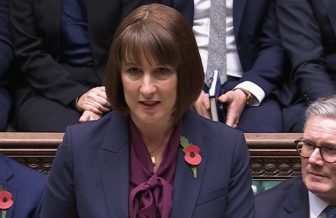
Widespread concern is building around reports that Labour is considering a major overhaul of the housing tax system, including the introduction of a new levy on higher-value homes.
According to The Guardian, Whitehall officials are exploring plans for a national property tax that could replace stamp duty on owner-occupied homes. One proposal under discussion includes imposing a new tax on properties valued over £500,000, raising fears of a broader shift in how property is taxed across the country.
The potential reforms are seen as part of a wider effort to modernise the current system, which many argue is outdated and inefficient. However, industry voices warn that any move perceived as targeting homeowners – particularly in areas with high property values – could be politically and economically risky.
Paula Higgins, founder and CEO of the HomeOwners Alliance, said: “Stamp duty is unfair, outdated and stalls the housing market. Our research shows that nearly half of homeowners considering a move say Stamp Duty puts them off, and it particularly penalises growing families and downsizers. Tinkering won’t fix it. The only solution is to scrap stamp duty completely.
“On the suggestion of introducing a new property tax there shouldn’t be a money grab by treasury at the expense of homeowners. It’s an attack on homeowners and history shows that introducing a new tax is never followed by the removal of older taxes.
“In the interim the government needs to tread carefully. Uncertainty around property taxes causes paralysis in the housing market. We’ve just seen how damaging this uncertainty can be: in April this year, when Stamp Duty thresholds changed, transactions collapsed by 64% in a single month – the sharpest fall on record. Homeowners can’t afford a repeat.”

Simon Gerrard, chairman of Martyn Gerrard Estate Agents and past president of Propertymark (NAEA) has also shared his thoughts following reports that chancellor Rachel Reeves is mulling replacing the current stamp duty regime with a new property tax.
In short, he welcomes the end of stamp duty but is concerned that the new taxes could be onerous and may lead to asking prices soaring on properties above £500,000 sellers offset losses. He is particularly concerned what the move might mean for those starting a family in London, where property prices are significantly higher than the average.
Gerrard said: “The existing stamp duty regime is unfit for purpose and has had a chilling effect on the housing market, which is why I’ve long campaigned to reform it. It’s good to see that the Government has understood some of the issues and is taking action to end the broken system. Adding further costs to purchasing a home has only reduced transactions, stifled upward mobility and prevented the efficient functioning of the housing market. This new tax would be paid by the seller, rather than the buyer which means that it won’t be the same tax on aspiration that Stamp Duty currently is.
“However, it’s clear that the government is motivated by a desire to raise revenues and I’m concerned that this new tax is going to be punishingly high. If that’s the case, you’re going to see a ceiling at the £500K threshold for that band of the market, as people avoid falling under the regime, and then a significant jump in values with nothing in between. Prices above £500K will skyrocket as sellers account for the losses caused by the tax, that used to be paid by the buyer.
“What most worries me is the effect on families in London. The housing market is far higher in London, which means any family home will be impacted by this new tax. If prices surge higher because of this new regime, how will anyone in the capital start a family? The government needs to think very carefully what the wider repercussions these changes might have and act carefully. So far many of its attempts at raising revenues through tax, such as the Stamp Duty changes earlier this year, have backfired.”
Read the orginal article: https://propertyindustryeye.com/reeves-urged-not-to-turn-new-property-tax-into-a-homeowner-money-grab/


